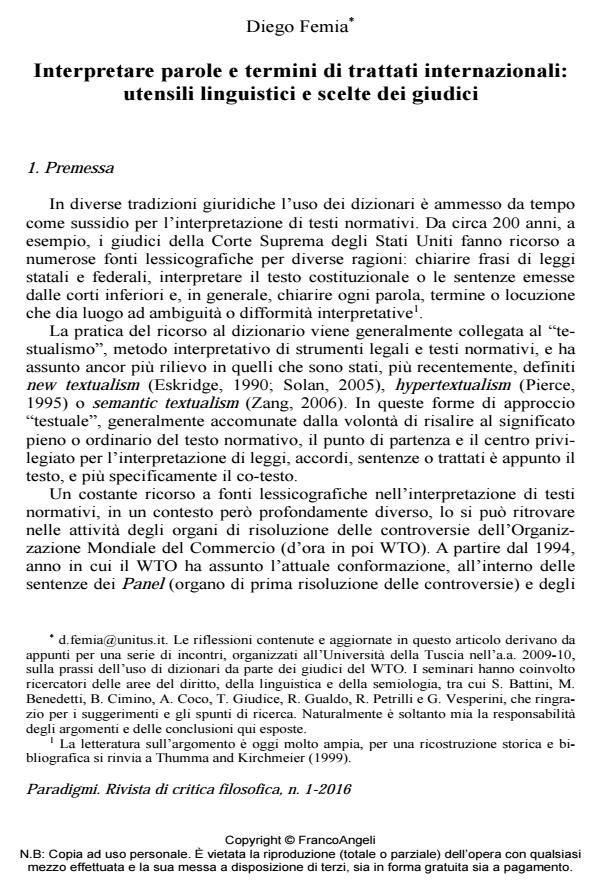The interpretation of words and terms of International Treaties. Linguistic tools and the choices of Courts
Journal title PARADIGMI
Author/s Diego Femia
Publishing Year 2016 Issue 2016/1
Language Italian Pages 15 P. 11-25 File size 195 KB
DOI 10.3280/PARA2016-001002
DOI is like a bar code for intellectual property: to have more infomation
click here
Below, you can see the article first page
If you want to buy this article in PDF format, you can do it, following the instructions to buy download credits

FrancoAngeli is member of Publishers International Linking Association, Inc (PILA), a not-for-profit association which run the CrossRef service enabling links to and from online scholarly content.
Interpretation in international law is a topical issue. This paper describes the treaties interpretation practice of the World Trade Organization and focuses on the WTO’s use of dictionaries in order to interpret words and terms of the multilateral treaties. Taking into account the different levels of linguistic analysis necessarily involved, the author traces the dimensions of the phenomenon and, through the definition of a research form, conducts an initial analysis of these interpretive practices and presents some results of this study.
Keywords: Dictionaries, juridical discourse, linguistic vagueness, ordinary meaning, treaty interpretation, WTO
- La lingua ordinaria nel diritto: aspetti dell'interdisciplinarità Raffaella Petrilli, in PARADIGMI 1/2016 pp.27
DOI: 10.3280/PARA2016-001003
Diego Femia, Interpretare parole e termini di trattati internazionali: utensili linguistici e scelte dei giudici in "PARADIGMI" 1/2016, pp 11-25, DOI: 10.3280/PARA2016-001002